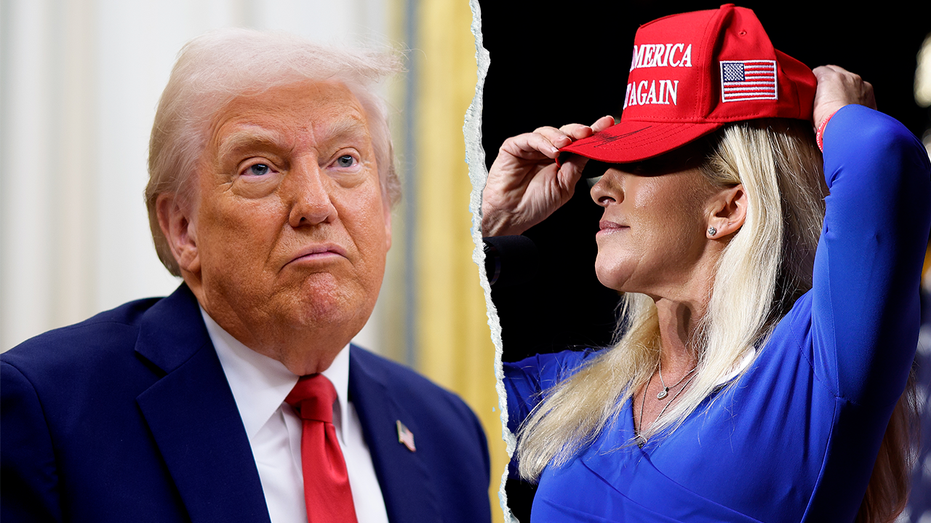Longtime Trump Ally Turns Against GOP's 'Big, Beautiful Bill' in Unexpected Reversal
Marjorie Taylor Greene admits she voted on the One Big Beautiful Bill Act without reading it fully.

Rep. Marjorie Taylor Greene, a prominent Republican figure and longtime ally of former President Donald Trump, publicly reversed her stance on the widely debated One Big Beautiful Bill Act this week, admitting that she had not read the bill in its entirety before casting her vote in favor of it. This startling admission adds Greene to the growing list of high-profile Trump supporters in the House who are now voicing strong opposition to key elements of the legislation they helped pass just two weeks ago.
Greene’s abrupt about-face comes amid escalating backlash among Republican legislators, including Rep. Scott Perry of Pennsylvania. Perry, another steadfast member of the MAGA movement, criticized party leadership in the aftermath of billionaire Elon Musk’s very public condemnation of the bill. “I wish I had a nickel for every time the @freedomcaucus sounded the alarm and nobody listened, only to find out the hard way we were right all along. We expect MASSIVE improvements from the Senate before it gets back to the House,” Perry remarked, highlighting growing dissatisfaction within the GOP’s most conservative ranks.
The One Big Beautiful Bill Act—dubbed by Trump himself—passed the House by a single vote after protracted overnight sessions and emergency negotiations in Speaker Mike Johnson’s office. The legislation was designed as a pillar of Trump’s campaign platform, aiming to address border security, ramp up American energy production, and implement sweeping tax cuts. Despite these promises, cracks began to show almost immediately, with leading Republicans in both chambers now expressing grave concerns about the bill’s long-term fiscal impact and controversial provisions.
At the center of the latest storm is Elon Musk, who until recently held a government post as the head of the Department of Government Efficiency (DOGE) in the Trump administration. Now unrestrained by executive branch protocols, Musk has taken to social media to lambast the bill, calling it a “massive, outrageous, pork-filled Congressional spending bill” and accusing lawmakers who supported it of having done “wrong.” Musk’s criticism has reverberated throughout the party, sowing further discord at a crucial moment for Republican unity.
Much of the GOP’s discomfort stems from the bill’s projected effect on the national debt. The nonpartisan Congressional Budget Office estimated that while the legislation would cut taxes by an estimated $3.7 trillion, it would also increase deficits by $2.4 trillion over the next decade. As of June 4, the national debt had climbed to over $36.2 trillion, underscoring anxieties about runaway federal spending.
However, for Greene, the tipping point is a newly discovered provision that prohibits states from enacting or enforcing laws regulating artificial intelligence (AI) for ten years. The measure essentially overrides state authority on a rapidly evolving technology sector. “Full transparency, I did not know about this section…that strips states of the right to make laws or regulate AI for 10 years. I am adamantly OPPOSED to this, and it is a violation of state rights,” Greene wrote on X, vowing to oppose the bill if it returns from the Senate unchanged. She added, “We have no idea what AI will be capable of in the next 10 years, and giving it free rein and tying states' hands is potentially dangerous.”
The White House remained unmoved by the mounting criticism, with Press Secretary Karoline Leavitt affirming that President Trump stands firmly by the bill, regardless of dissent from Musk or congressional allies. “This is one big, beautiful bill, and he’s sticking to it,” Leavitt said, dismissing reports of internal divisions.
With pressure now mounting on Senate Republicans to strip out the AI restriction and address deficit concerns, the fate of the One Big Beautiful Bill Act remains uncertain. Greene and other GOP lawmakers have signaled a willingness to reject the final version unless significant changes are made, setting the stage for a high-stakes legislative showdown in the weeks ahead.




